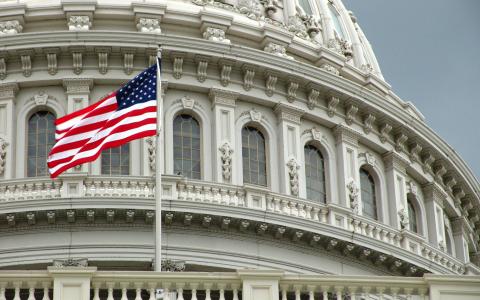
The Dodd-Frank banking "reform" was passed in 2010 in the wake of the 2008 financial crisis, which cost millions of workers their jobs and millions of retirees much of their living standards.
Resolving the crisis required a massive bailout of Wall Street by Main Street.
The bill's goal was to prevent a reoccurrence. It contained new regulations, gave the Federal Reserve greater bank-resolution power, limited proprietary trading, and created the Consumer Financial Protection Bureau.
The bill runs 848 pages long. Its ancillary provisions run thousands more. Hence, fully digesting this legislation is no picnic.
But one can easily appreciate the major features of the bill, not from its contents, but from its omissions.
The bill fails to meaningfully address either bank leverage or bank opacity — the root causes of financial crises, past, present, and, surely, future.
Last week's Republican "reform" of the Dodd-Frank "reform" relieves small- and medium-sized banks from the additional regulatory strictures of Dodd-Frank.
But it too does nothing to address leverage or opacity and, therefore, does nothing to prevent the next financial crisis.
Our financial system is best described as faith-based banking. We lend banks money on the promise of repayment.
The banks then invest our money in risky and, far too often, supremely stupid ways or they devise ways to steal it.
When their investments go south or their malfeasance runs rampant, they hide their losses.
But eventually, rumors about bad banks doing bad things reach the street and panic ensues.
In the old days, before deposit insurance, the public ran on banks.
These days banks run on banks by calling interbank loans and restricting further interbank lending.
They panic because other banks panic and because they too are in the dark.
This is the message of The Big Short — Wall Street didn't know what it was buying or selling.
The commission was the thing and the banks that got into the most trouble were the ones with no chairs when the music stopped, i.e., those that got stuck with their "troubled assets."
Wall Street is not the only industry with a well-deserved bad rap.
The used car industry is chock full of "used car salesmen." But Wall Street is not any old industry.
It's an industry that runs/operates/maintains the financial market, which is a public good.
An analogy to banks is gas stations.
They run our highways, which are clearly public goods.
Were gas stations to gamble with their businesses, lose their shirts, and collectively shut down, commerce would come to a screeching halt. Congress would immediately act to protect the public good — the highway system. It would restrict gas station owners to their one and only purpose — selling gas, not gambling.
Gas station owners would be free to gamble with their own money on their own time in their own homes.
But they would not be free to gamble, let alone all gamble in the same manner, with their businesses.
As described in my book, Jimmy Stewart Is Dead, the way to keep banks from gambling with the financial system is to prohibit their borrowing in any way, shape or form and establish a government agency — the FFA — to verify and disclose on a real-time basis the assets they hold.
I call this system Limited Purpose Banking (LPB).
Ending bank leverage may sound pie in the sky.
But look at our mutual fund system, which accounts for roughly 30% of all U.S. financial assets.
Apart from money market funds, which remain leveraged due to their promise, at least to small investors, to back investments to the buck, our 401(k)s, IRAs, and other mutual funds are 100% equity financed.
We don't lend such mutual funds money. Instead, we buy their shares.
And if their investments do poorly, the market value of our shares in those funds drops.
But the funds themselves, which are simply non-leveraged banks, never fail. How could they?
They don't owe a penny to anyone.
There are some 10,000 mutual funds, which not only buy equity but also make mortgages and loans to companies and individuals.
In the 2008 financial crisis, we had financial companies made of brick and financial companies made of straw. The companies made of brick were the equity-financed mutual funds.
The companies made of straw were the leveraged banks. When the storm hit, the banks collapsed.
The equity-financed mutual funds did not fail, not a single one. Dodd-Frank rebuilt our financial system out of straw.
LPB, which has been endorsed by a Who's Who of financial experts, would end financial crises for all time. LPB runs all financial markets, including the markets for derivates and insurance, mortgages, corporate bonds, government bonds, and small business loans through 100-percent equity-financed mutual funds.
There are no shadow banks. Every financial corporation is restricted to doing one thing and one thing only — issuing open-end and closed-end, 100-percent, equity-financed mutual funds, whose assets are verified and disclosed on a real-time basis by the Federal Financial Authority.
All other federal and state financial regulatory agencies are shut down because they are no longer needed.
Financial corporations that wish to leverage must operate as partnerships or proprietorships, i.e., with unlimited liability.
Non-financial corporations can borrow, but only to spend on real investment, not to purchase financial assets of any kind.
Postscript: Barney Frank read my book and called me to his local office in the Summer of 2010 after Dodd-Frank was signed into law.
He said that he agreed fully with Limited Purpose Banking, that Dodd-Frank was an interim measure and that he'd push for LPB when he returned to Washington. In November 2010, the Republicans took the House.
Frank lost his chairmanship of the House Financial Services Committee and chose not to run for election in 2012.
Today, he works for a heads I win, tails you lose bank. So do the Republicans running the Financial Services Committee. Just look at their list of donors.



